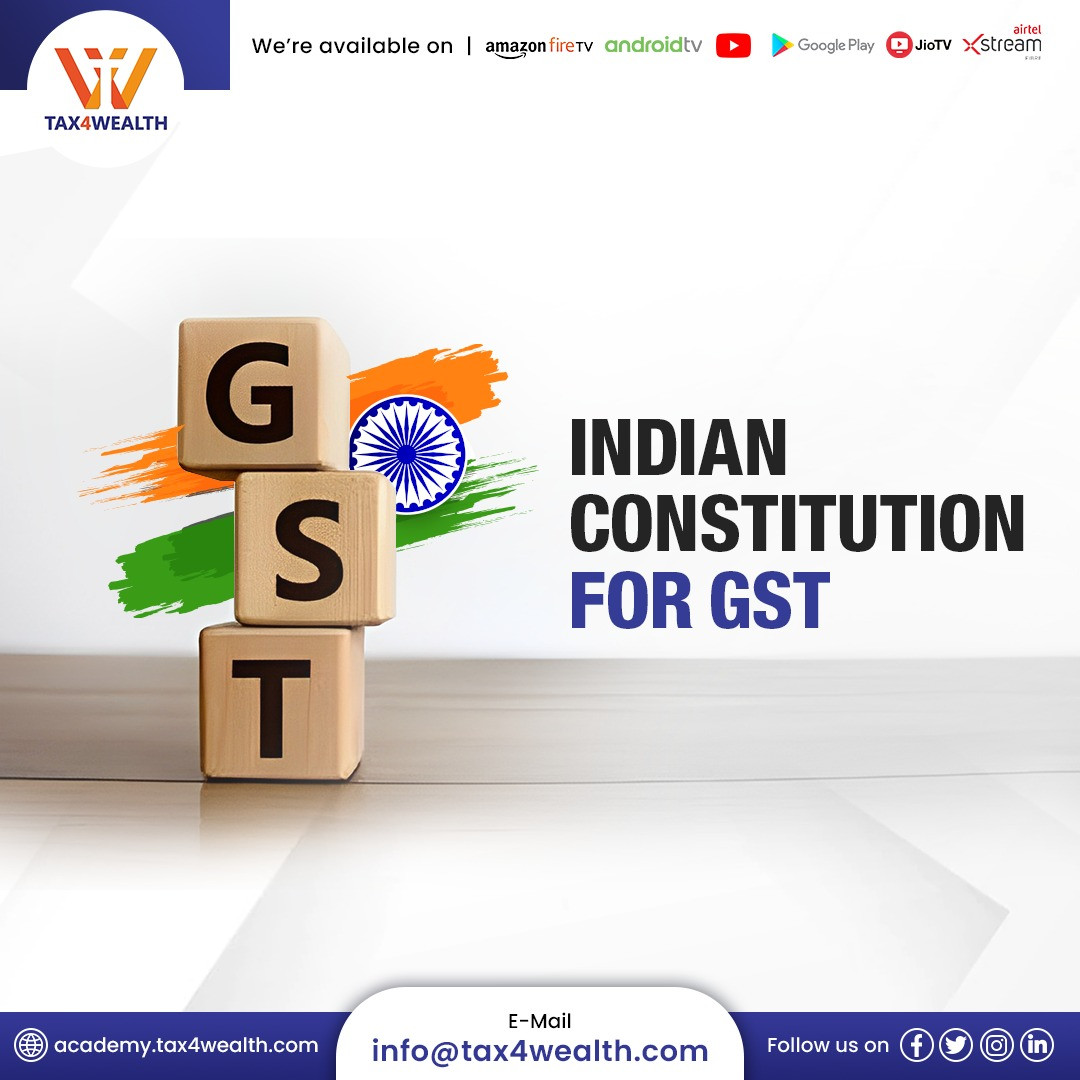
Indian Constitution for GST
Amendment:
Under the Indian Constitution for GST, the Union and the State List provide the power to levy separate taxes to the Centre and States respectively. GST was supposed to be implemented in such a way that both the Center and the State would receive the prowess to levy and collect the said tax. Furthermore, an Amendment to the constitution was deemed necessary to provide consistency in legislation across the Centre and various State/Union Territory Legislature.
Constitution (101st Amendment) Act, 2016:
This Act caused the insertion, deletion and amendments of certain Articles under the constitution, in order to properly implement the GST legislation. As a result of these changes following issues came to light and were dealt with:
- The portrayal of the ability to levy and make laws with respect to GST
- The applicability of the GST Law and its potential scope.
- The way of allocation of revenue generated from GST from the Center and State
- GTS council’s powers, duties & constitution
- The cessation of the previously existing taxes for the sole implementation of GST
- For the loss of Revenue borne by the States with the implementation of GST, Providing them Compensation.
Various Articles under the Constitution for GST:
- Article 246A: A Special Provision for GST
- Article 269A: Levy and Collection of GST for Inter-State Supply
- Article 279A: GST Council
- Article 286: Restrictions on Tax Imposition
- Article 366: Addition of important definitions
Compensation to States under GST:
There is a provision to provide compensation in the form of relief to the States on the account of the revenue loss caused by the implementation of GST. The validity period for the same is Five years.
Related News
No comments yet, Be the first to comment.













